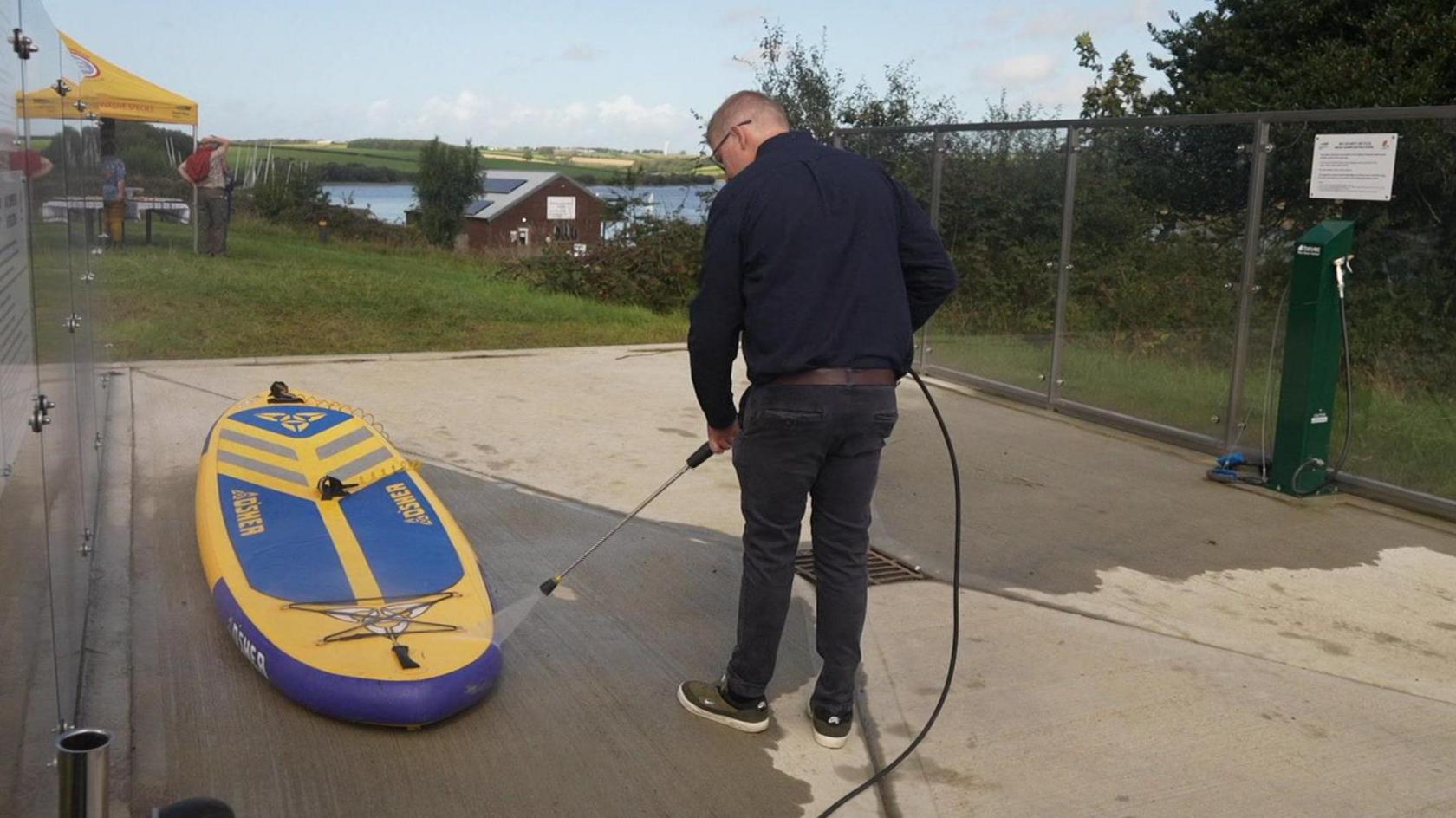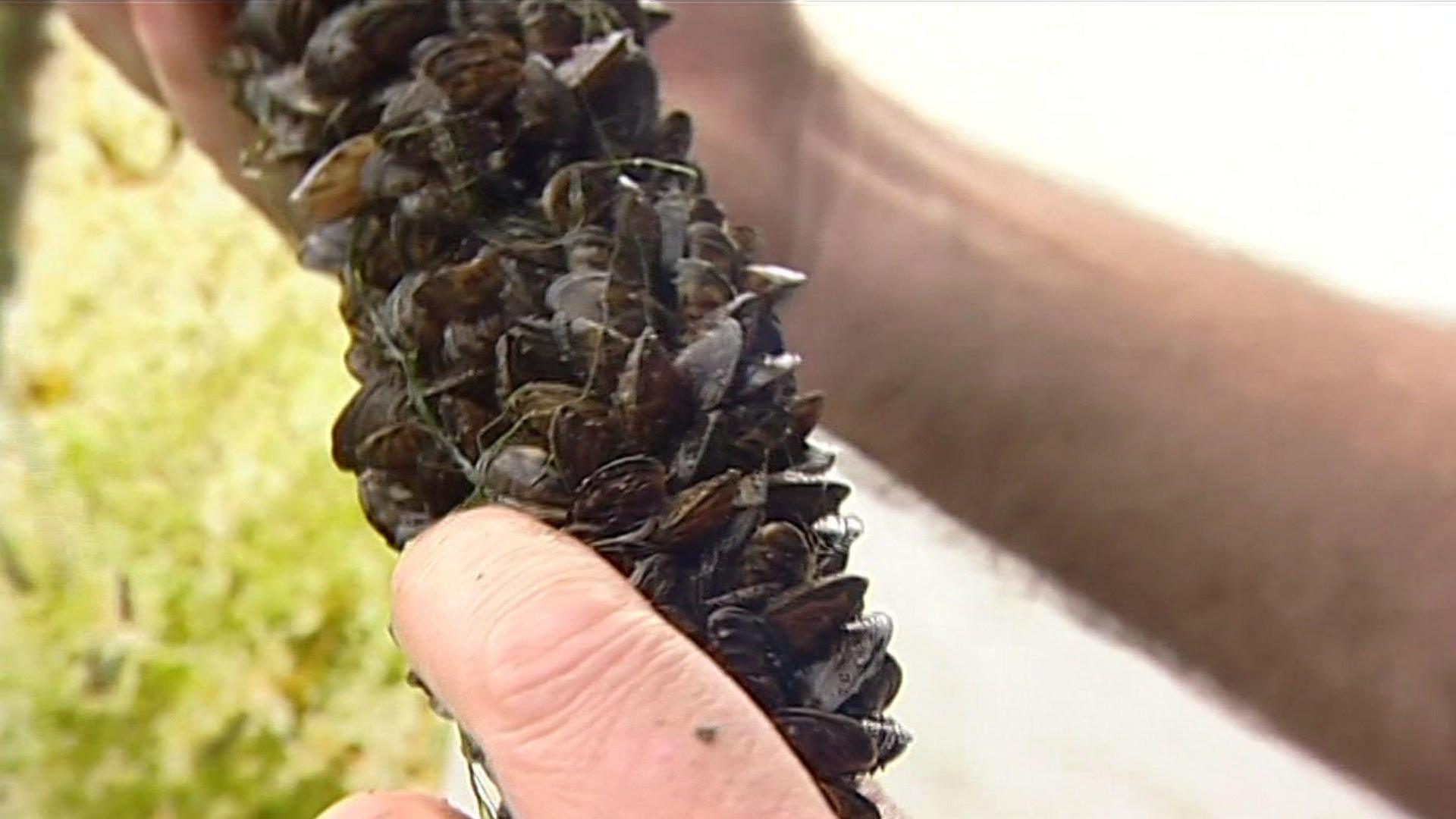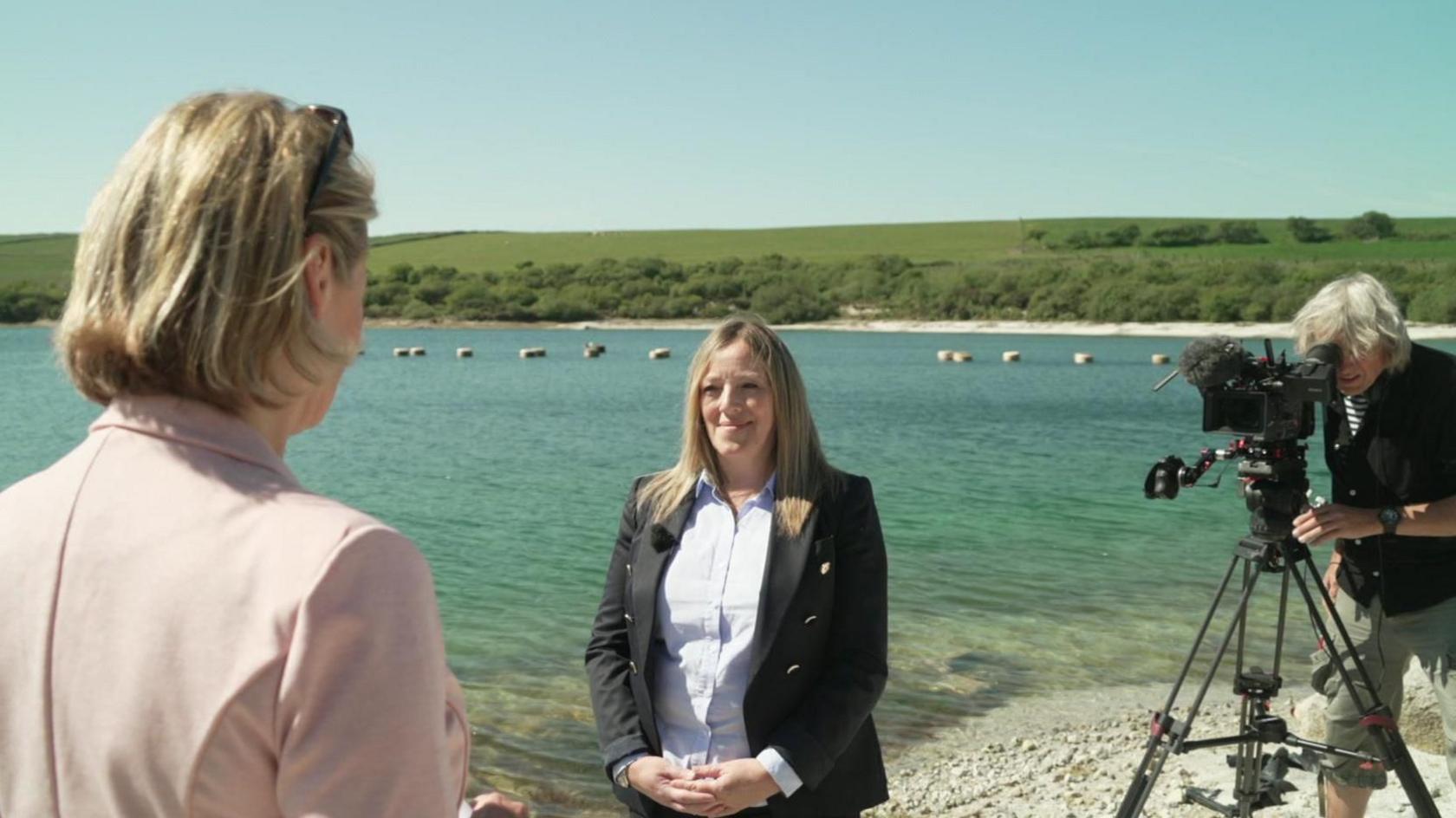Public washdown unit opened to protect reservoir

People using the lake have been invited to pressure wash their equipment so any invasive species can be safely disposed of
- Published
A free-to-use washdown facility for bikes, boats and other watercraft has been installed on the border of Devon and Cornwall as part of work to protect local reservoirs.
South West Water (SWW), which is behind the initiative, said the wash station at Upper Tamar Lake, near Bude aimed to "fight against invasive species" which can harm the environment.
People using the lake are being asked to pressure wash equipment like paddleboards and kayaks so any invasive species can be safely disposed of before entering the reservoir.
SWW said non-native creatures like zebra mussels or American signal crayfish found elsewhere in the area could easily be transported on wet equipment and "cost millions to control".
'Eliminating the risk'
SWW said: "Imagine a single mussel, no bigger than your fingernail, sneaking in on the hull of a boat or a strand of weed caught in a bike tyre after a ride round the lake.
"Invasive species can block vital drinking water pipes, smother native plants or outcompete native species."
The wash station's panelled sides contain the spray, with all run-off draining into a central soak-away system that traps and disposes of any plant fragments, larvae or mud that could harbour invasive species.
SWW invasive fish and aquatic biosecurity officer Ashley Bunning, said it was "often the smallest things that cause the biggest problems".
"It's all about eliminating the risk, people coming on site can get the invasives off their boards and help protect the reservoir," he said.

SWW said non-native creatures like zebra mussels found elsewhere in the area could easily be transported on wet equipment
The nearby Bude Canal is the only known site in Cornwall for zebra mussels, and one female can produce 500,000 offspring a year.
"If they come to this reservoir which is only 10 miles away down the road it can clog up pipework for drinking water supply and affect the natural environment in the reservoir," Mr Bunning added.
"A quick washdown might not seem like much, but it could be the difference between keeping our reservoir safe and facing a problem we can never undo."
SWW said the work was part of its Water Industry National Environment Programme and similar projects had previously been rolled out at Roadford reservoir in Devon and Stithians reservoir in Cornwall.
It added the washdown station was open during the day and free to use, with an automatic shut-off at night to prevent misuse.
Follow BBC Cornwall on X, external, Facebook, external and Instagram, external. Follow BBC Devon on X, external, Facebook, external and Instagram, external. Send your story ideas to spotlight@bbc.co.uk, external.
Related topics
- Published23 May

- Published20 May
